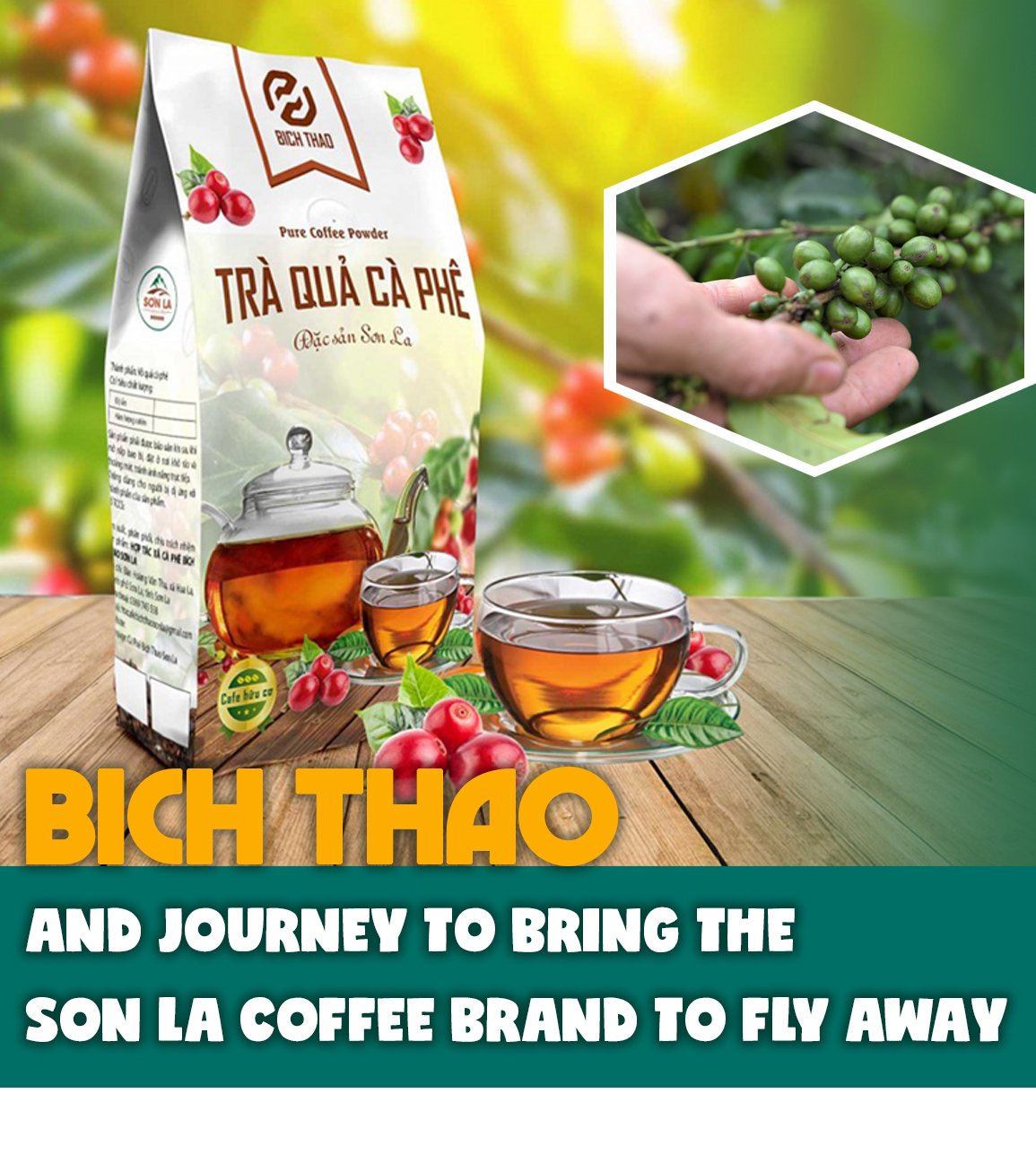
With more than 10,000 hectares of agricultural production land, along with the preferences of nature in climate and soil, Son La city, Son La province, has great potential for agricultural development.
In the past, people mainly grew short-day food crops with unstable income, but since 1990, people have started to grow coffee. It is initially shown that, compared with short-day crops, coffee brings higher economic benefits, lower investment costs, and less care. Since then, coffee trees have been planted by people all over the upland fields and hills.
Son La has a system of overlapping mountains surrounded by pans and plateaus. Son La Arabica coffee is grown on slopes at the foot of mountain ridges or on shallow hills with elevations from 900m to 1200m.
Son La has a cold climate with a lot of rain. Arabica coffee trees here grow well and are of high quality. Son La is the second-largest Arabica coffee-growing province in Vietnam after Lam Dong province.
As of now, Son La city has approximately 8,000 farmer households in the area cultivating coffee intensively. Coffee is present all over the hillsides and valleys, interlaced in the orchards. Coffee has become an industrial crop that plays an important role in economic development and brings high economic value to farmers and coffee processing and production enterprises in the area. Many households have an income of VND 200–300 million/year, contributing to hunger eradication, poverty alleviation, and new countryside construction in the locality.
Chairman of the Son La City People's Committee Do Van Tru said that the city is one of the three localities with the largest coffee-growing area in the province (approximately 5,000 hectares). The annual gross output of fresh coffee reaches from VND 500 million to nearly 1 billion, accounting for 46% of the total gross output of main crops. The average gross output reaches VND 150–200 million/ha.
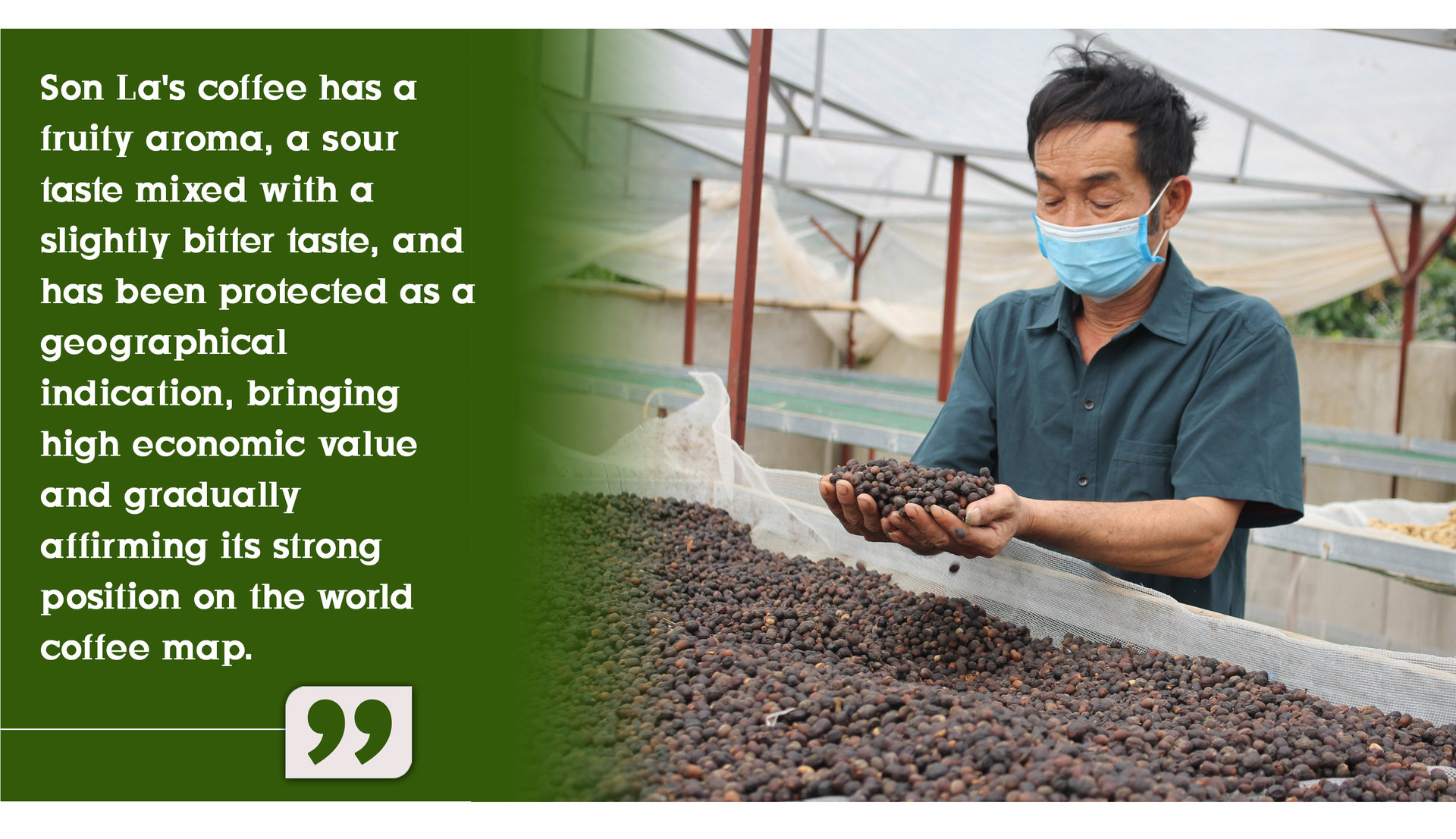
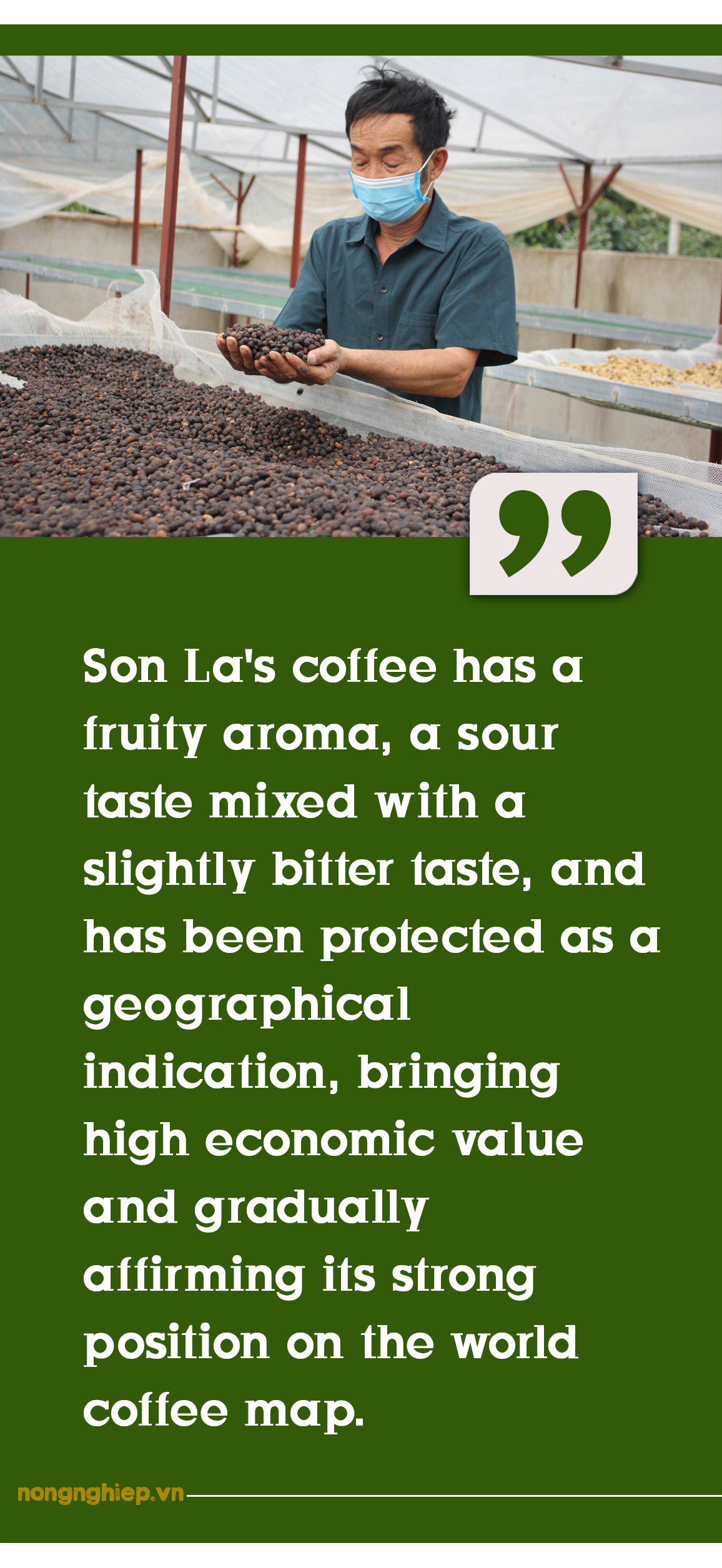
In particular, intensive coffee farming has helped the city’s farmers repel poverty, rise to get rich, and be the first unit of the province to complete the national target program on new countryside construction.
Director of the Son La Crop Production and Plant Protection Sub-Department Duong Gia Dinh informed that, as of 2021, Son La's coffee-growing area has reached nearly 18,000 hectares, of which the harvest area reached more than 16,000 hectares, with a yield of more than 1.8 tons/ha of green coffee and an output of nearly 30,000 tons of green coffee. The coffee-growing area is mainly concentrated in Mai Son, Thuan Chau, Sop Cop, and Yen Chau districts and Son La city. Son La coffee products have been granted a geographical indication by the National Office of Intellectual Property in 2017.
Son La is now forming coffee processing factories that apply modern production technology and deep processing to enhance the value of coffee products, stabilize output, and improve people's income, contributing to restructuring crop production in the locality.
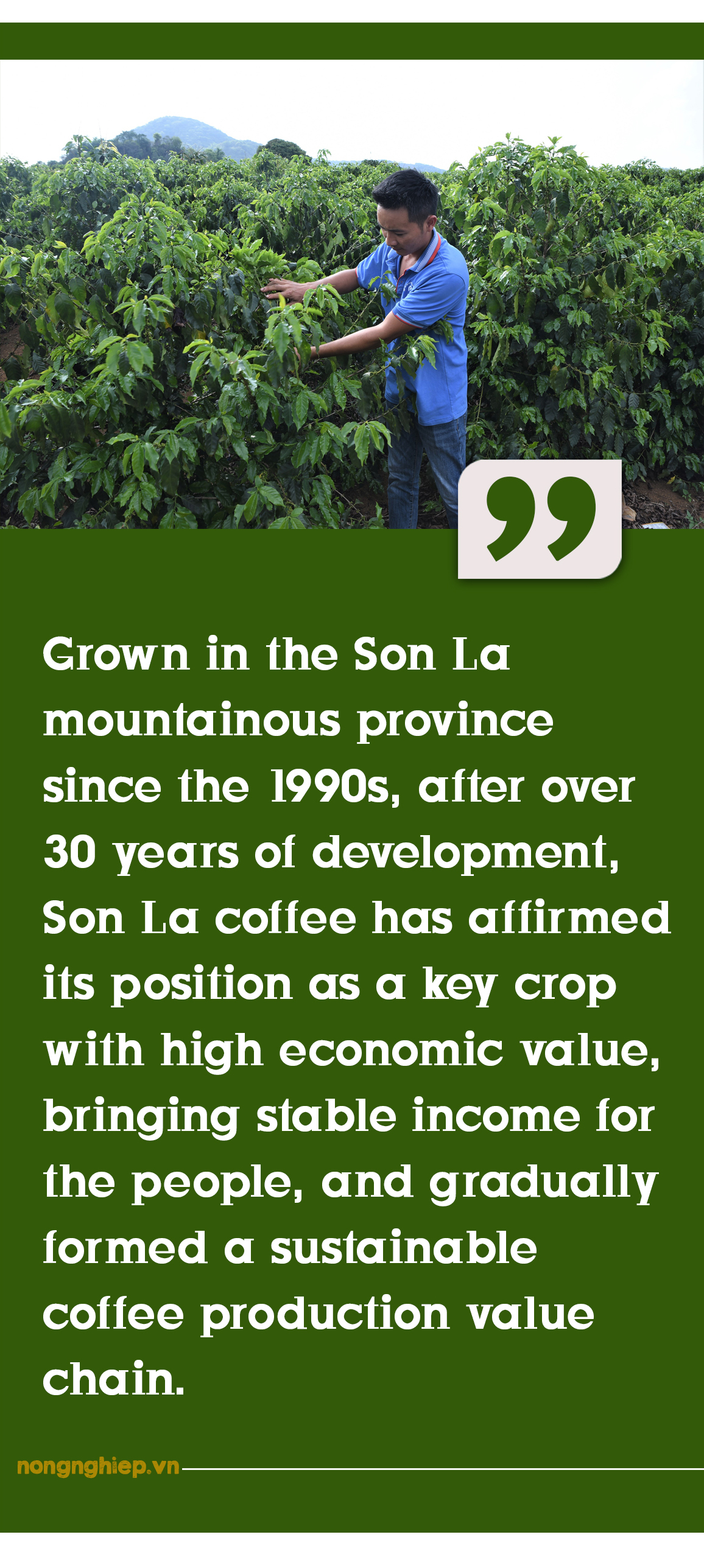
Along with sustainably developing coffee trees, Son La province has been developing orientations, goals, and strategic solutions to raise the brand and further improve the value of coffee trees.
Mr. Nguyen Thanh Cong, Vice Chairman of Son La Provincial People's Committee, said that the province is focusing on reviewing and re-evaluating the overall area of coffee trees, thereby replanting coffee trees with a new set of varieties, especially paying attention to coffee varieties that provide high-quality products and Son La specialty coffee varieties.
At the same time, Son La province focuses on producing, processing, consuming, and occupying a stable coffee export market share in the province, in the country, and in the world; associating growing areas with processing factories; and associating farmers and farmer households with cooperatives to sign growing contracts and follow standards.
Since the "mission" of hunger eradication and poverty alleviation, coffee has now become the key industrial crop of Son La province. Many specialty and high-quality coffee products have gradually conquered demanding markets, contributing to affirming the image and brand of Vietnamese coffee on the world coffee map.
Arabica is a type of coffee grown popularly in Brazil and South American countries. In particular, Brazil is the world's largest producer of Arabica coffee. Although it is the main producer of Robusta coffee, Vietnam is also home to some of the most delicious Arabica coffees in the world, which are grown in the provinces of Lam Dong, Quang Tri, Dien Bien, and Son La.
Arabica grows well at an altitude of 900–2000m, with rainfall of 1,500–2,500 mm/year and a suitable temperature of 15–25 oC. Arabica has a small canopy, oval-shaped, dark green leaves, and oval coffee fruits. When mature, the tree can reach a height of 2.5–4.5m. Even many trees growing in wild conditions can reach a height of 10m.
Arabica coffee has a high economic value but a low yield, poor resistance to pests and diseases, and is difficult to grow and care for. Harvest time is usually 3–4 years after growing. Arabica has a lifespan of about 25 years. In natural conditions, this coffee tree can reach a lifespan of 70 years.
The Northwest land, mainly Son La and Dien Bien provinces, has suitable soil and climate, so this place mostly grows Aabica coffee.
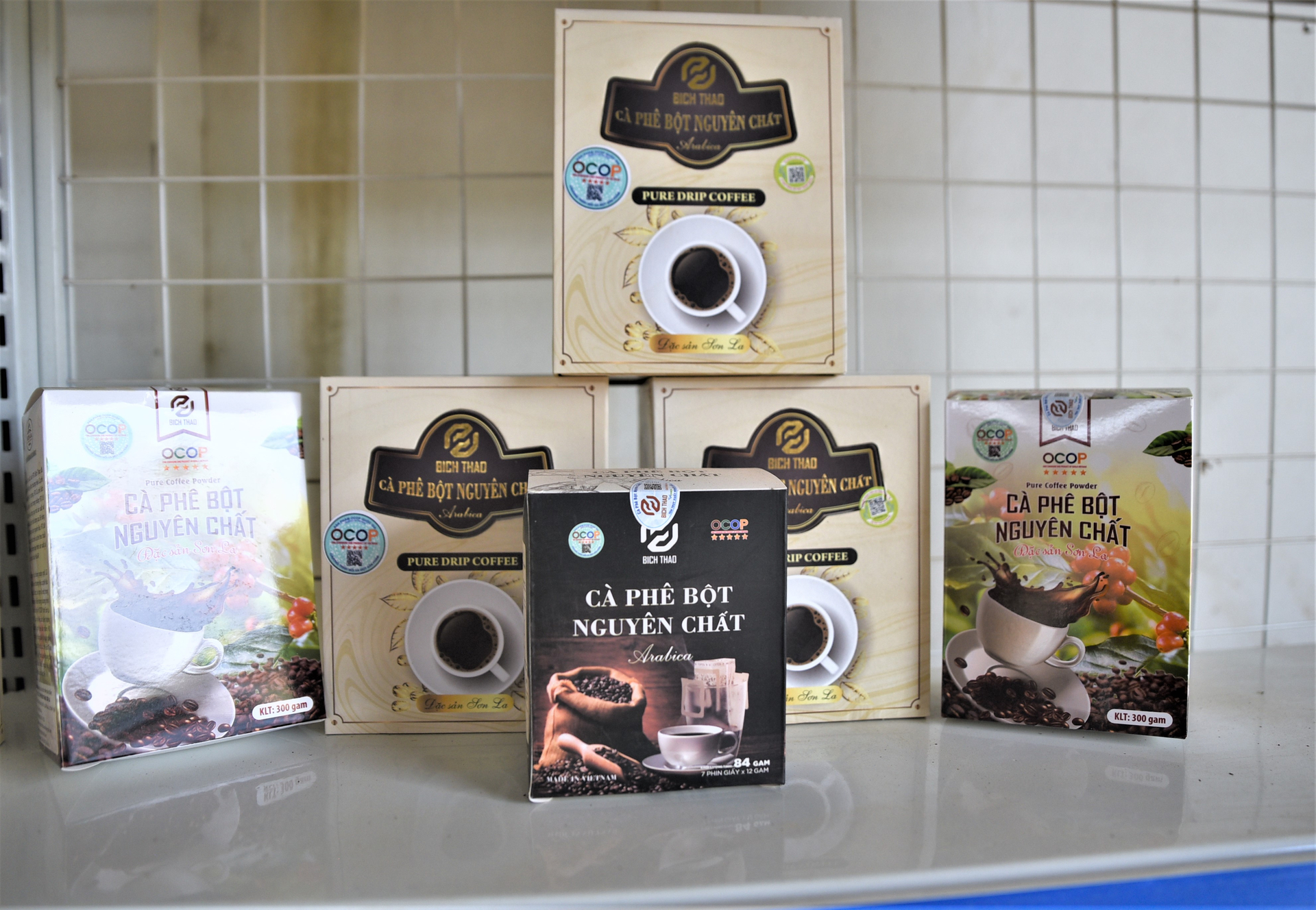

Mr. Nguyen Xuan Thao, Director of Bich Thao Coffee Cooperative, a pioneer unit in coffee growing and production in Son La, welcomes guests from Hanoi to visit the coffee garden and recalls.
About four years ago, every time he saw the scene of people working hard but coffee coming to the days of harvest suffered traders’ price squeezing, Mr. Thao always wondered how to make coffee have a stable output and raise the price of Son La coffee. Determined to find out the root of the problem and find a new direction for Son La coffee, Mr. Thao realized that the coffee raw material area grown since the early 1990s was old and stunted, affecting product quality.
In 2017, Mr. Nguyen Xuan Thao associated coffee-growing households in Hoang Van Thu village, Hua La commune, Lang Son city to establish Bich Thao Coffee Cooperative with 11 members and a scale of 50 hectares of coffee and was elected as director. Right from its establishment, the cooperative has put into production new varieties and focused on developing organic and specialty coffee lines.
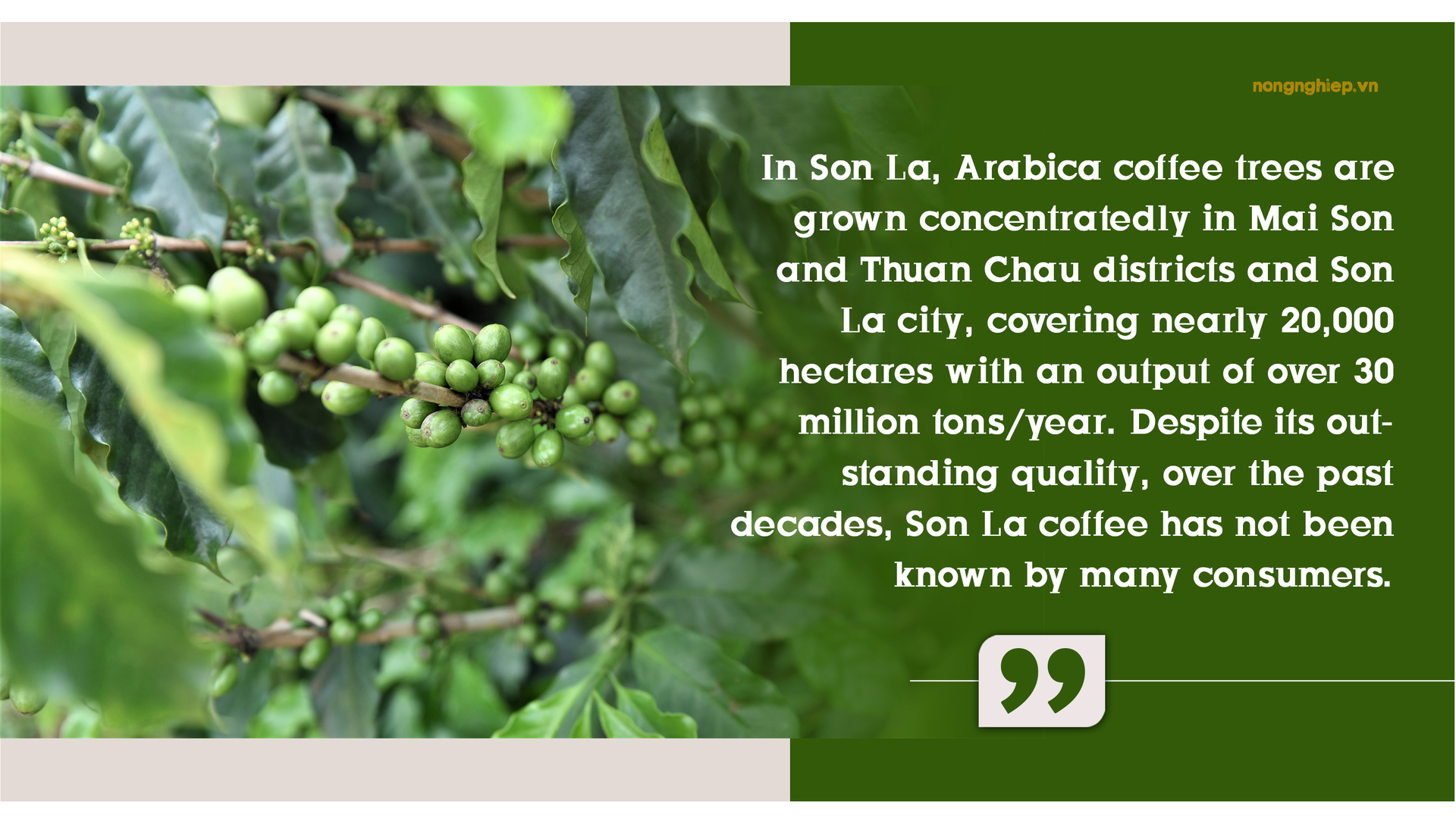
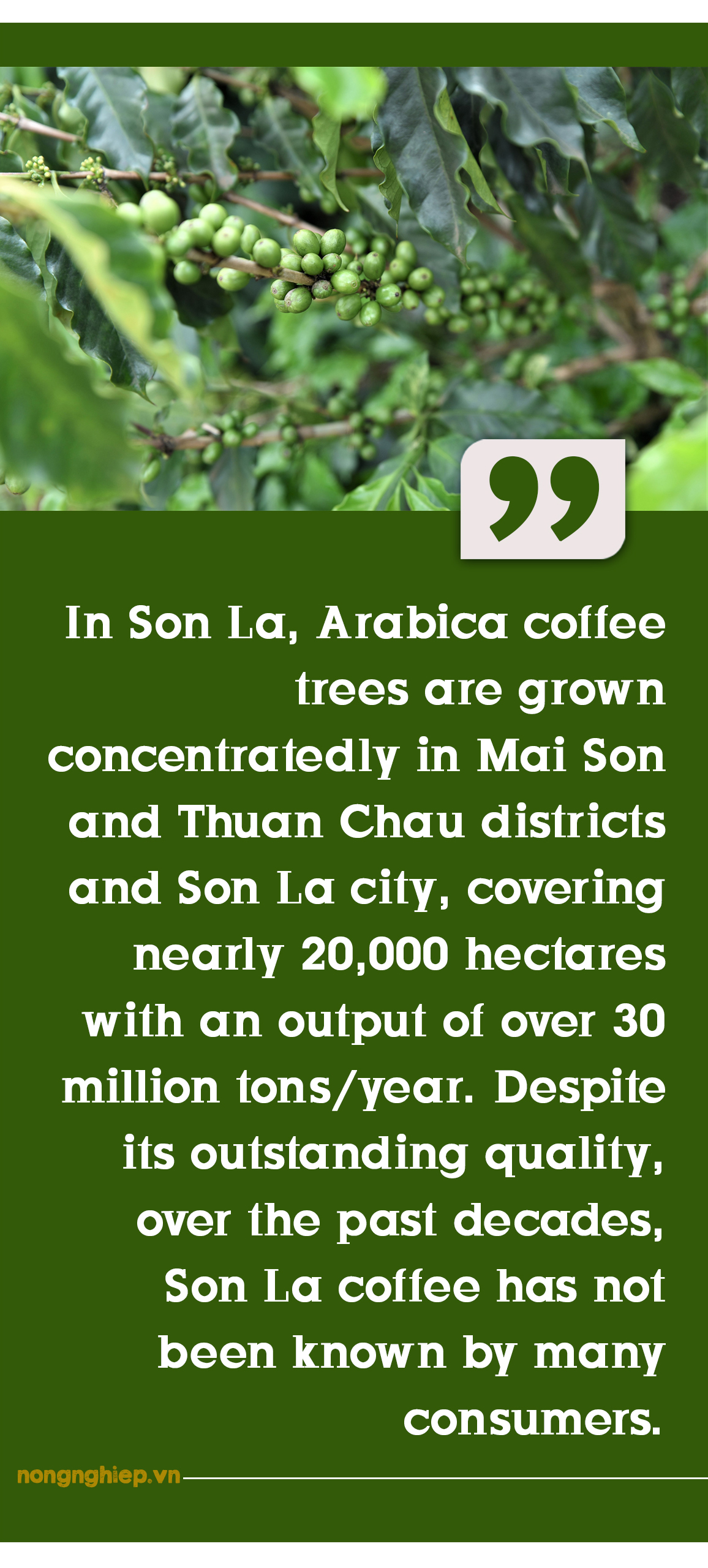
With the orientation of not following quantity but promoting the application of science and technology to improve coffee quality and overcome environmental pollution, in early 2021, the cooperative started construction of a coffee processing factory, with a scale of approximately 1,120 m2 and a capacity of 20 tons of green coffee/day, and a total capital investment of VND 16 billion. The processing line follows a closed process, including: grating machine, size bolting machine, weight bolting machine, color sorter with German and American technology, coffee roasting and grinding machine, storage warehouse, product display and introduction area.
Especially, Bich Thao Coffee Cooperative uses the technique of growing and caring for coffee trees with organic fertilizers and processing coffee fruits by a method of not using water and drying in the greenhouse, ensuring the intrinsic quality of coffee beans and producing green coffee products with uniform color and quality. Therefore, coffee always has good quality and high commercial value, minimizing polluting waste and contributing to a clean and friendly environment.
Products are manufactured according to VietGAP standards, which is also a condition for the cooperative's coffee bean products to be exported to demanding markets such as Germany, the United States, France, etc.
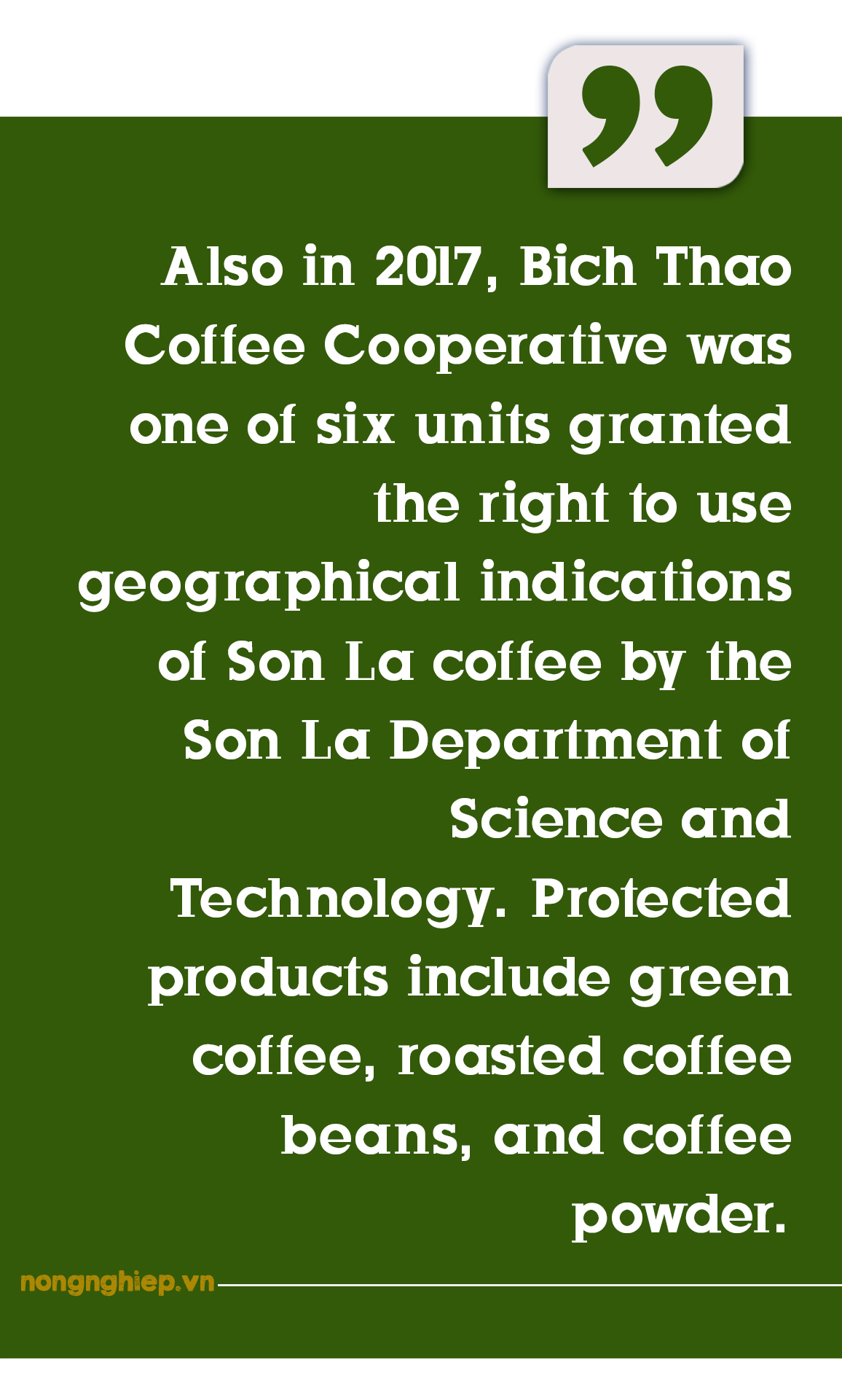
Coffee cherry syrup tea is the cooperative’s latest product that has been researched, manufactured, and successfully tested for export. In foreign countries, coffee cherry syrup tea is known and favored by consumers because it is rich in vitamins, has a natural sweetness, contains very few stimulants, and has the effect of cooling the liver and reducing blood lipids.
Grasping that factor and as a person dedicated to Son La coffee, Mr. Nguyen Xuan Thao was transferred new production technology by German and American experts. As a result, at the beginning of 2018, the cooperative successfully produced coffee fruit tea from coffee husks that has a natural aroma, is rich in vitamins, and has the effect of cooling the liver and reducing blood lipids, etc. The product was favored by domestic consumers and successfully exported to France, Germany, and the United States.
The process of producing and processing this product is extremely strict; 100% must be red, ripe coffee, collected, processed according to the process, and dried in the greenhouse. To produce coffee fruit tea, coffee must be harvested at a certain time, between 9 and 10 a.m. and 15 and 17 p.m., and guaranteed to preserve the natural sugar content in the coffee husks.
The harvested coffee will be washed, dried for 3–4 hours, and then peeled. The peeling section does not use water like the traditional production process, so it avoids polluting the environment. Coffee husks are produced into tea, and the beans are used to process honey coffee.
In order to improve the quality and value of products according to the safe product supply chain and gradually build the prestige and brand of Bich Thao coffee in particular and Son La coffee in general in the international market, the cooperative has focused on expanding production scale, signed contracts to purchase agricultural products with 800 coffee-growing households in the province, and made purchases from outside linkages with thousands of households in Mai Son, Thuan Chau, and Phu Yen districts and Son La city.
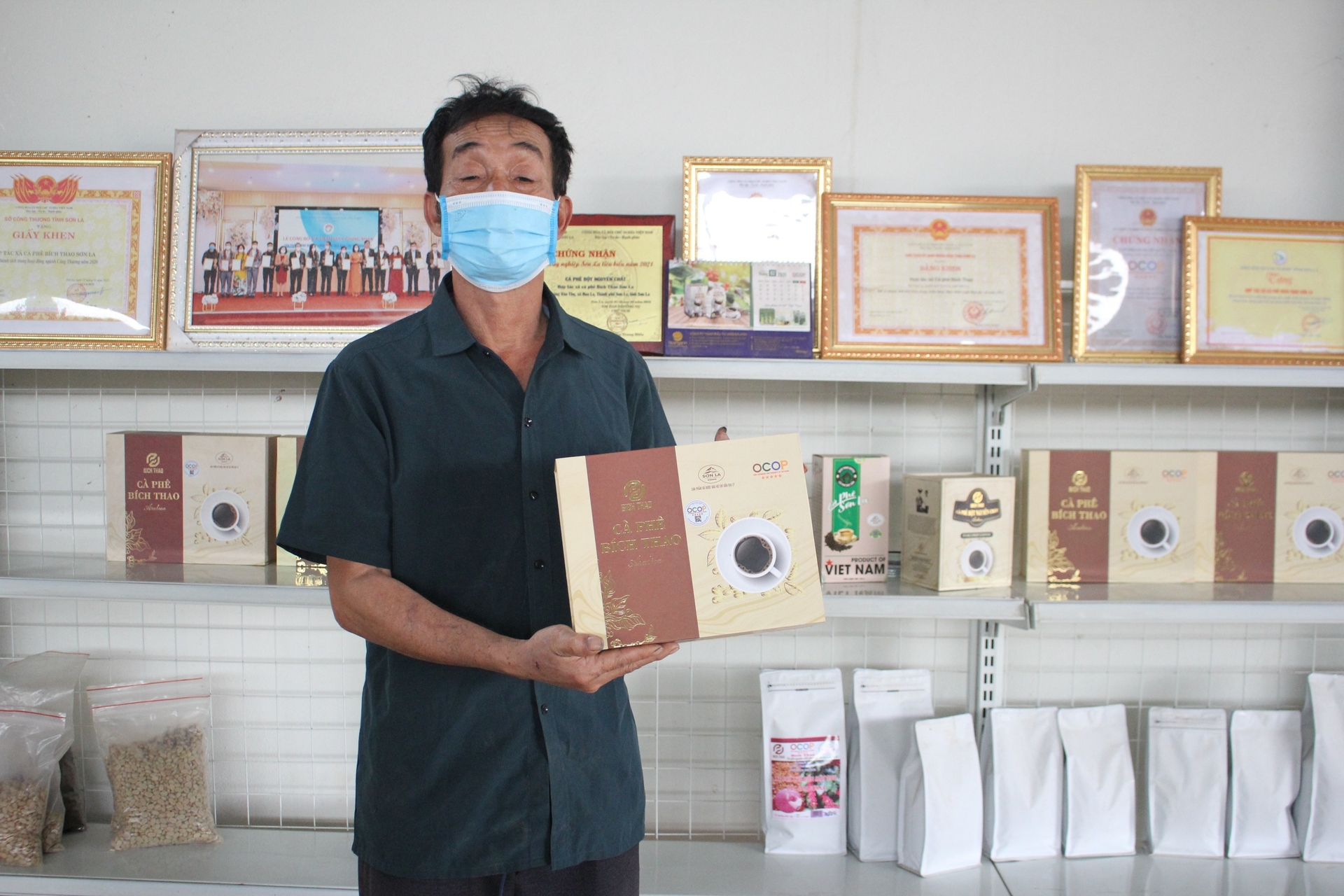

Since 2018, Bich Thao Coffee Cooperative has actively applied science and technology in production stages and deployed a model of growing 15 hectares of safe coffee, recognized for production according to VietGAP standards. The cooperative has also coordinated with the Western Highlands Agro-Forestry Scientific and Technical Institute (EAKMAT Coffee Research and Technology Transfer Center) in collaboration with the Ministry of Agriculture and Rural Development to implement the National Coffee Development Program and grow experimentally 15 hectares of a new Arabica coffee variety (THA 1) in Hua La commune (Son La city) and Muong Do commune (Phu Yen district).
In addition, the cooperative also cooperated with businesses to implement the organic production model and invest in seeds and fertilizers to newly grow 10 hectares of the THA-1 Arabica coffee variety with high yields and large fruit, which currently serves export processing.
Following that, in 2020, the cooperative expanded by 40 hectares of THA 1 coffee and varieties TN6, TN7, and TN9 in Hua La and Chieng Ban communes (Mai Son district), increasing the total area of coffee of new varieties to 60 hectares, of which 20 hectares planted in 2018 have been harvested for the first crop.
In order to provide seeds of new coffee for farmers, in 2021, the cooperative has actively deployed THA 1 coffee nursery, with an area of 1,000 m2.
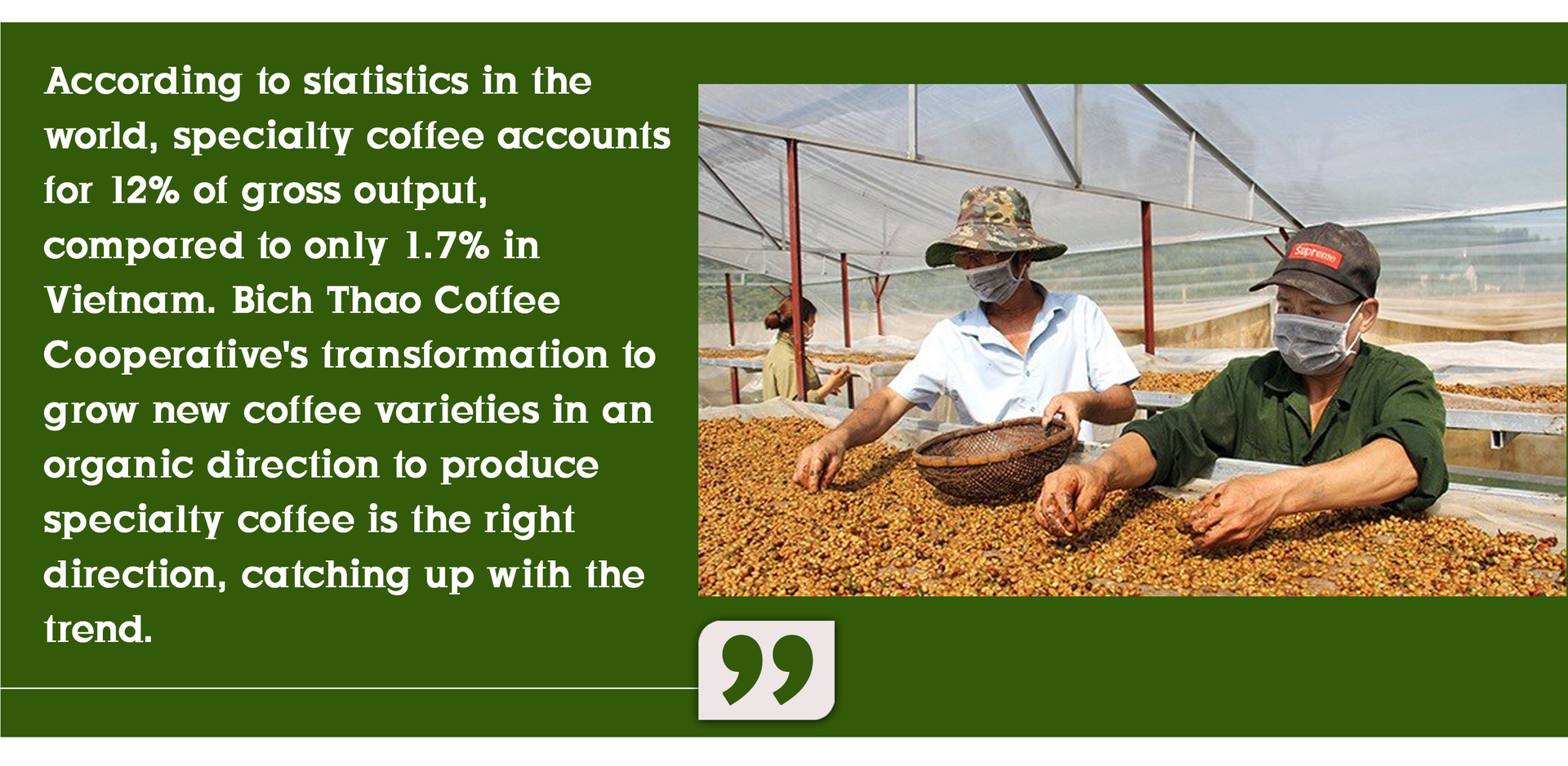
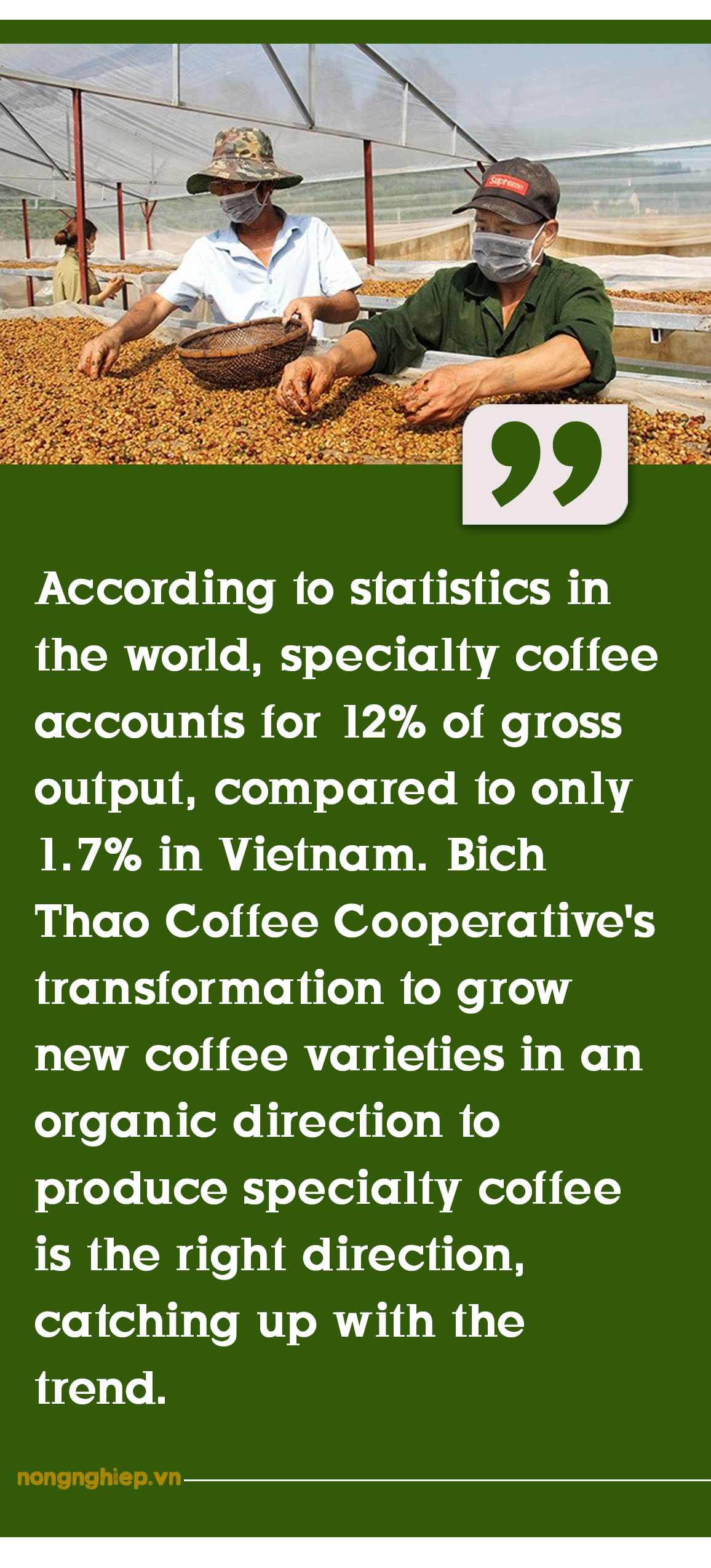
In 2022, the cooperative incubated about 500,000 coffee seedlings of new varieties. Up to now, the cooperative has provided about 200,000 trees for farmers to plant. In addition, the cooperative has also implemented a nursery in Chieng Ban commune, Mai Son district, with about 300,000 seedlings.
Introducing new coffee varieties, Mr. Nguyen Xuan Thao said that THA and TN coffee varieties are better able to adapt to harsh weather conditions than the currently grown Catimor coffee variety. The total cost of seedlings and fertilizers is about VND 150 million/ha. After 3 years of growing, these coffee varieties can be harvested, with an average yield of 25–30 tons of fresh fruit/ha, a selling price of VND 20,000–25,000/kg of fresh fruit, and 80% of beans reaching the sieving type of 18 (type 1), while catimo coffee only has 40% of beans reaching the sieving types of 16 and 18.
According to Mr. Thao, this new coffee variety has the advantages of being stronger, disease-resistant, resistant to climate change, and having large, even beans. Because the Catimor coffee variety was grown more than 20 years ago and the climate between the beginning and present is different, its yield is not high.
After 3 years of growing, the specialty coffee can be harvested; the average yield reaches 30-35 tons of fresh fruit/ha/year, while the yield of Catimor coffee is only 20-25 tons of fresh fruit/ha/year.
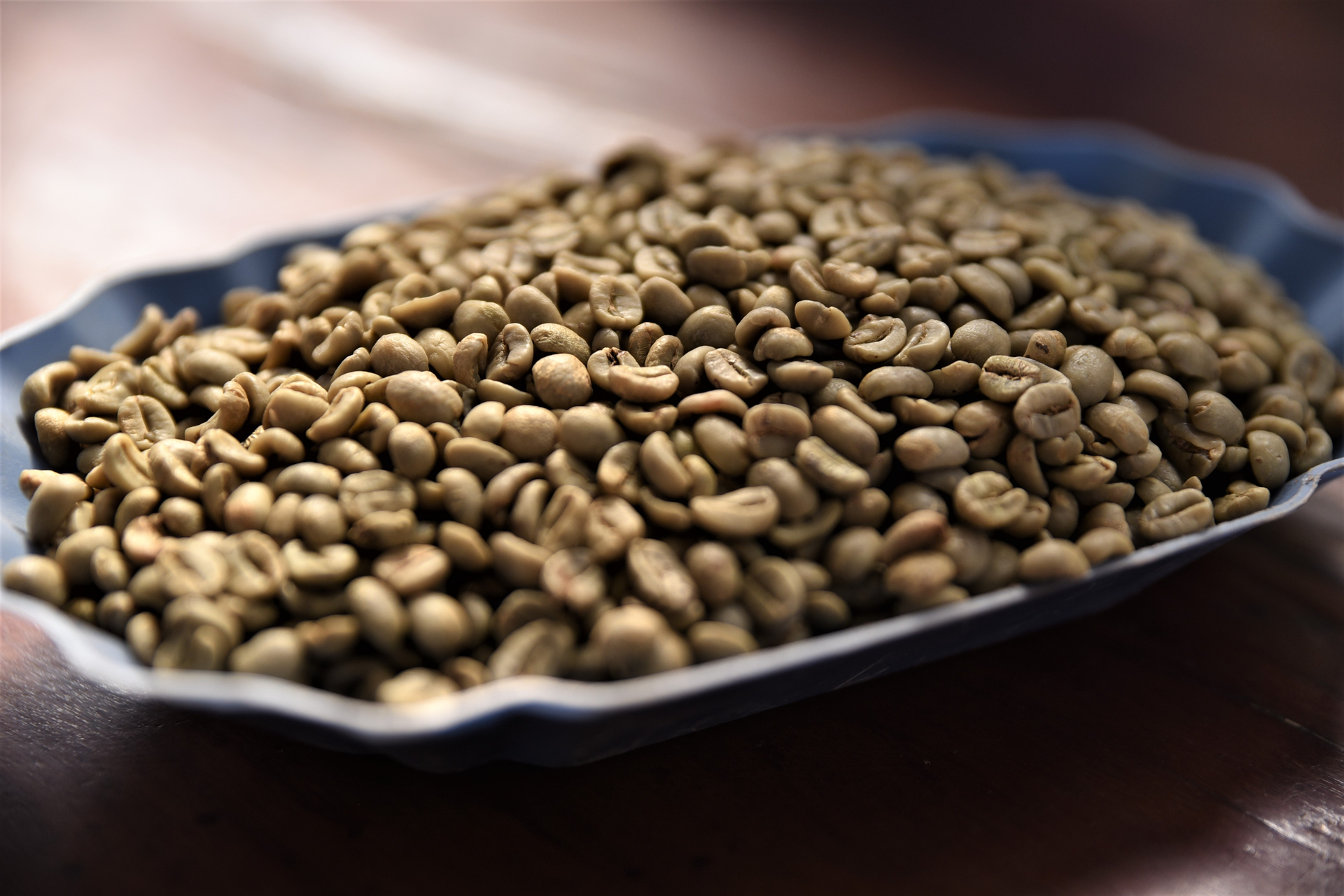
It can be seen that, up until now, most THA 1 coffee trees have grown many new pairs of branches, promising to replace the old and stunted local Catimor coffee trees. This coffee variety is incubated by seeds and has high resistance to rust.
As for this new coffee variety, Bich Thao Coffee Cooperative has been transferred and oriented caring techniques according to the organic direction since 2018. The entire coffee area of cooperative members has been fertilized with organic fertilizers and compost worms, so the trees grow and develop very well. Thereby contributing to increasing yields and quality and protecting consumers’ health.
In 2019, Bich Thao Coffee Cooperative received 4-star OCOP certification for its products of coffee fruit tea, and pure coffee powder. Continuing in 2021, the Bich Thao pure coffee powder product has passed many candidates and been granted a 5-star OCOP product certificate.
Compared with other coffee varieties, although Arabica is highly appreciated for its taste and economic value, it is a plant that is difficult to cultivate, has poor resistance, requires many techniques, and is a cold-loving plant. It grows well at a temperature of about 18–24 oC and an altitude of about 1000–1500m.
Vietnam is not a land with ideal soil for this coffee variety, but there are still four famous Arabica coffees grown in Vietnam, including Bourbon, Typica, Mocha, and Catimor.
Among the four types of Arabica coffee, Catimor is the coffee variety with the strongest vigor. Crossed between Timor and Caturra coffee varieties (Timor is a hybrid of Arabica and Robusta coffee), Catimor possesses outstanding growth characteristics with good resistance to pests and diseases. Not only that, the taste of Catimor is also perfectly balanced between the sour taste of the Timor variety and the sweet taste of Caturra, not too bitter like the purebred Robusta but rich enough to seduce enjoyers.
This coffee variety usually grows optimally at an altitude of 700–1000 m and gives a high yield and delicious coffee quality. Therefore, Catimor is widely grown in Vietnam, including some of the following popular varieties:
Catimor T-8667: The stem is quite short but gives very large fruits and beans.
Catimor T-5269: a hardy coffee variety, adapting and developing well at an altitude of 600–900m and a rainfall of more than 3000 mm/ year.
thích nghi được các điều kiện phát triển ở những nơi quá thấp hay quá cao.
Catimor T-5175: a coffee variety with a very high yield, but it is not adapted to growing conditions in places that are too low or too high.
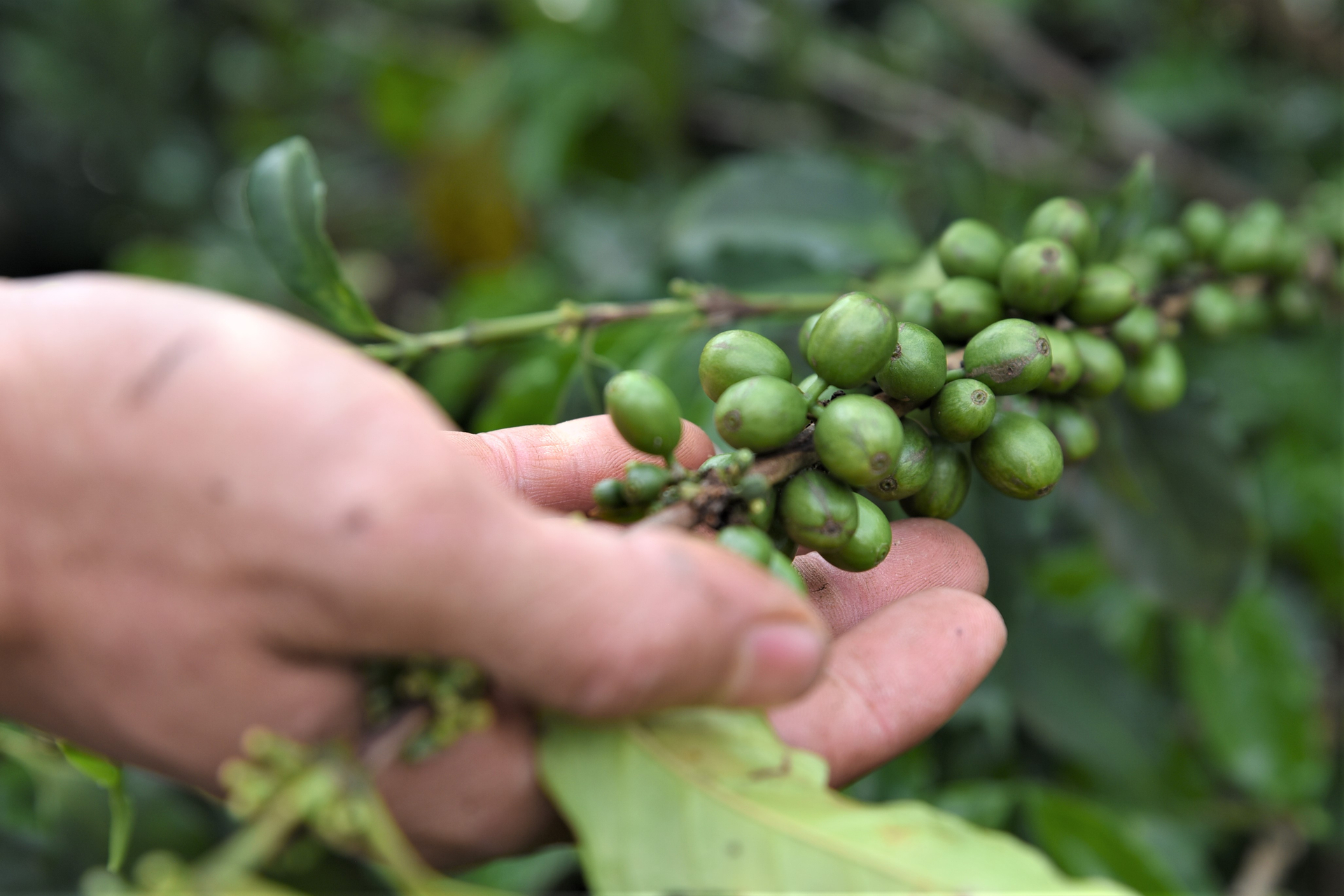
Authors: Pham Hieu - Quang Dung
Translate: Thu Huyen
Photo: Pham Hieu - Quang Dung
Designed by VAN



